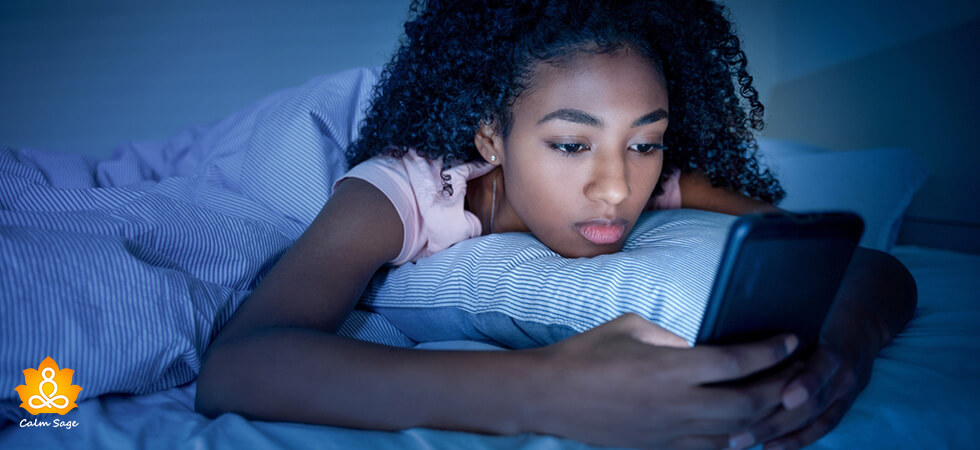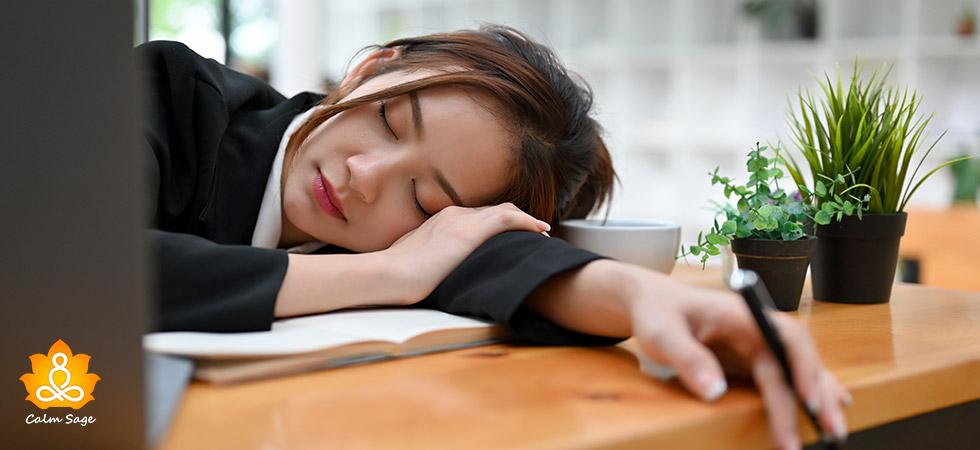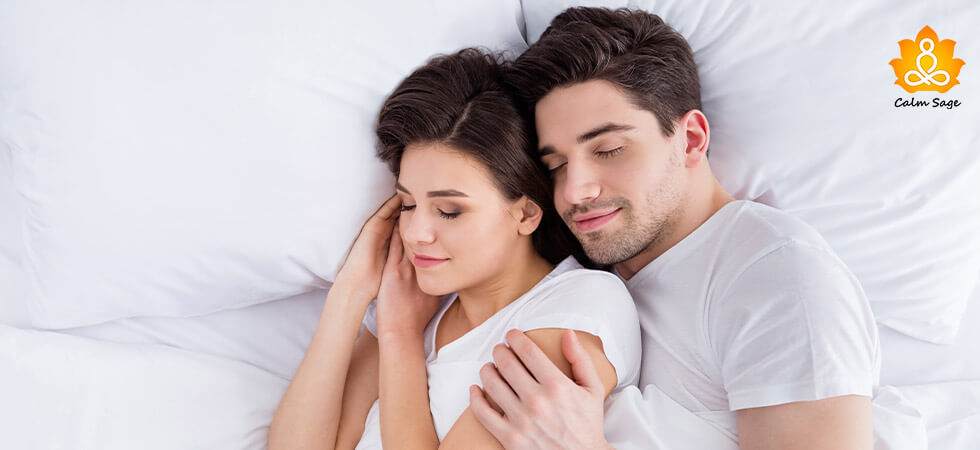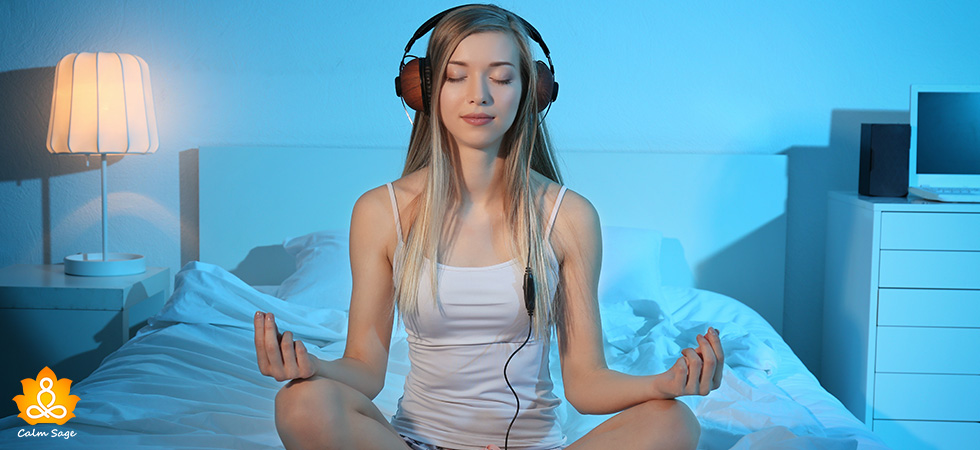From Staying Up Late to Sleepless Nights: Understanding Insomnia in Teens

Teenagers are notorious for trying to stay up late either playing video games or reading and studying, and I can’t begrudge them for it as I, too, used to be the same. Sleepless nights have been a regular occurrence in many teenagers’ lives, however, it is also one of the reasons why insomnia in young adults is on the rise.
The CDC estimates that every 6 in 10 children (aged 6–12 years) sleep less than what they are supposed to – at least 9–12 hours every night as recommended by The American Academy of Sleep Medicine – whereas 7 in 10 teenagers (ages 13–18 years) get less than the recommended ten hours of sleep every night. This rising sleep deficiency has caused teenagers and young adults to develop problems such as insomnia, trouble falling asleep, staying asleep, and getting good quality sleep.
Sleep expert, Dr. Judith Owens, says that when teens hit puberty they experience a shift in their circadian rhythm so their natural sleep-wake time shifts up to a couple of hours. Another thing that happens in teens is that their sleep drive slows down. In teens, it’s not always about wanting to stay up late, but also because their bodies can.
Despite these changes, not getting enough sleep can be considered one of the most urgent health risks in teenagers and young adults. Insomnia in teens can lead to mood changes, low attention span, and poor impulse control among many other things.
In this blog, let’s explore how insomnia in young adults affects their daily life, what are the symptoms to watch out for, and how you can help a teen who can’t sleep at night.
Insomnia In Teens: What Causes It?

Sleep is an important part of our lifestyle. It’s the one thing our body and mind need to reset and recharge. From an infant to an adult, sleep is important. When it comes to sleep patterns in teenagers, it’s recommended that a teen should get at least 8–10 hours of sleep at night.
However, as a teen, a child experiences puberty – a phenomenon that causes biological as well as psychological changes. This event can disturb the circadian rhythm and interfere with the sleep pattern of the child. Teen brains produce melatonin, the sleep hormone, late at night than toddlers’ and adults’ minds does. This causes a teen to struggle with falling asleep. This delay in the natural sleep-wake cycle can also bleed into their day-to-day activities and cause them to struggle with “delayed sleep syndrome” or “night owl syndrome”
Now, puberty isn’t the only reason teens lose sleep or struggle with insomnia. The advent and overuse of electronic devices are another reason. The blue light these devices emit can affect melatonin production. Low melatonin levels can cause sleep disturbances, making it difficult to fall asleep.
Other common reasons for teens developing insomnia or sleep troubles can include;
- Physical discomfort (feeling sick, cold, headache, etc.)
- Poor sleep environment
- Increased levels of anxiety and stress
- Mental health disorders (depression, PTSD, etc.)
- Other medical conditions (sleep apnea, sleepwalking, narcolepsy, asthma, etc.)
- Side effects of certain medications
- High caffeine intake
- Poor sleep hygiene
While losing sleep from time to time is a common occurrence when you’re a teen or an adult, if the symptoms of insomnia persist for more than two weeks or months, then it’s strictly recommended that you consult a doctor for diagnosis and treatment.
The Impact of Sleepless Nights on Teens

Sleepless nights or insomnia in teens can affect the quality of sleep and life among many other things. Some of the common consequences of insomnia in young adults include;
1. Depression and Suicidal Thoughts
More than 20% of teens are diagnosed with mental health disorders, the most common one being depression. Depression increases in teenagers and can affect more girls than boys, a study suggests. Depression and insomnia have a close relationship in teens as well as in adults. High sleep disturbances in depressed teens are a common occurrence. Sleep troubles in teens can also affect thinking patterns, increasing sleep troubles further.
Depression in teenagers can also be related to suicidal thoughts. Even after depression stops being a threat, sleep troubles may remain a predictor for suicidal thoughts and attempts in teens.
2. Anorexia Nervosa
In research, it was also found that there might be a link between teen insomnia and anorexia nervosa, the eating disorder. This can be associated with the malnutrition anorexia causes and the regulation of orexin or hypocretin, a neuropeptide that is needed for both eating and sleep regulation.
3. Substance Use
In teens, substance use is a growing problem with over 39% of teens (16–18 years old) reporting use of alcohol. In a study, an association between insomnia or sleep disturbances and alcohol use was found. Excessive use of alcohol and recreational drugs in teens can also be an indicator of sleep troubles and can even be a cause of the same. Teens may also use these substances as forms of self-medication for insomnia, further increasing the risk of addiction and other disorders.
4. Cognitive Functioning
More than the above-mentioned impact, insomnia in teens can also lead to negative development in the brain including cognitive functioning, academic performance, and learning abilities. While there are not many studies on how insomnia affects cognitive function in teens, there have been studies that have reported a negative association between insomnia and cognitive performance in adolescents and young adults.
How to Treat Teenage Insomnia?

It’s not easy to deal with sleep and hormonal changes in a growing teen, but if you’re looking for self-help strategies to help treat teenage insomnia, then here are some ways you may find helpful;
1. Improve Sleep Routine
Your teen may find it tempting to stay up late to either study or play, but you need to remind them that it’s important to maintain a healthy sleep schedule to assure good mental health. A consistent sleep routine can do wonders for your teen’s mind and can also help their internal clock to stay in sync. A healthy sleep routine can also help in the healthy production of melatonin.
2. Limit Screen Time
If it’s possible, then make sure that your teen avoids watching television, playing video games on a computer, and using their phones in their bedrooms at night. Electronic screens emit blue light that can be stimulating and can affect the production of melatonin, affecting the sleep of your teen and keeping them up all night. It’s also important to maintain a cool and comfortable sleep environment, especially in the bedroom.
3. Consider “Strategic Napping”
Teens want to sleep in late on the weekends, but it can disrupt their sleep cycle. While daytime naps are not always harmful for a good night’s sleep, it’s good to consider taking “strategic naps” during the day to keep the teen refreshed. A 30-minute or less nap (ideally between 3-5 pm) can be a good idea. Experts believe that this is the time when there is a lull in a teenager’s circadian rhythm.
4. Wind Down At Night
To help manage ruminating thoughts in teens at night, you can also recommend your teen keep a journal where they can record their thoughts and worries as well as any plans they have for the next day.
This exercise coupled with nighttime meditation or something equally calming such as listening to calming music or reading a book can help a teen wind down. Releasing some of the tension accumulated during the day can help manage the stress and reduce the pressure, assuring a restful night.
5. Avoid Late-Night Snacking
Heavy meals and late-night snacking can also be harmful to a teen’s good night’s rest. Late-night eating can cause heartburn and physical discomfort that can also disrupt the teen’s sleep. Caffeine, soda, chocolate, energy drinks, and alcohol are other substances that can also interrupt a good night’s rest, so it’s best if you can help your teen avoid these substances at night.
6. Seek Professional Support
If you see your teen’s sleepless nights increasing and insomnia causing issues in their waking life, then it’s good to seek professional help and support. If these self-help strategies are not working or if your teen’s sleep problems persist for more than a few weeks, then a consultation from a professional may not hurt.
A professional may help diagnose any sleep disorders, figure out the cause of your teen’s sleepless nights, and recommend the right course of treatment for them.
Quick Tips to Improve Sleep!
If you’re tired of tossing and turning at night, then here are some quick tips to help you sleep better at night;
- Go to bed at the same time each night and wake up at the same time each morning.
- Keep your phone away from you when you go to sleep and avoid using any electronic devices such as television, computer, etc. before bed.
- If sleep is hard to catch, consult a doctor and take melatonin supplements to support sleep throughout the night.
- Make sure your sleep environment is good. This means, having a comfortable mattress and pillow, wearing light clothes to bed, blocking all artificial lights, and keeping the temperature low.
- You can also consider using a white noise machine to help block other sounds from your environment and assure a healthy sleep environment.
- It’s also recommended that you avoid consuming caffeine and alcohol before bed and if you can, then make sure you get some light exercise before you tuck in for the night.
I hope this blog helped you understand how insomnia in young adults and teens can be a cause of concern and how you can help a teen who can’t sleep at night.
For more, feel free to connect with us on our social media or write to us info@calmsage.com.
Take care!




















